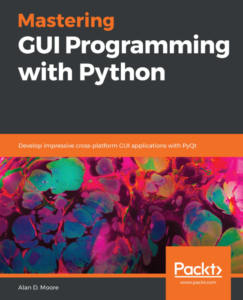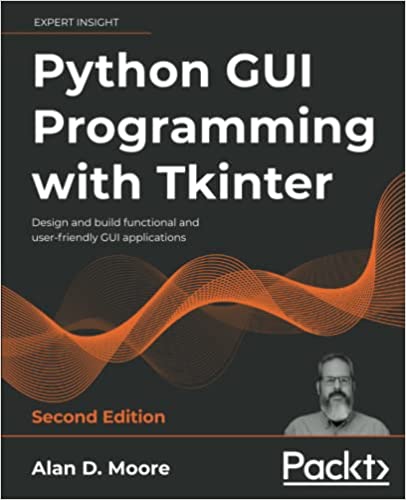I’ve worked with most of the major SQL databases over the last several years, including Oracle, MS SQLserver, MySQL, and PostgreSQL, both as an admin and (more often) as a developer. They’ve all got their ups and downs (some more of one than the other…), but when it comes to choosing a database for my own projects, my choice these days is nearly always PostgreSQL. This amazing, powerful server is unfortunately one of the hidden gems of the relational database world, so I thought I’d share a few reasons why it’s my personal favorite.
Building a Linux system for a Child, part 3: Security concerns
By now you’ve got that old computer purring along like a panther with your new favorite distribution of Linux, loaded to the brim with educational software, ready to propel your child to the heights of intellectual stimulation. But before we launch this starship, let’s take a bit to make sure the safety equipment is in order and reign in some potential problems.
From PHP to Python: things I wish I’d known
The story so far…
Back around 2005 I took my first leap into the world of writing useful programs armed only with my laptop, a Pentium II running Debian, and a fat book on PHP5. Though I’d taken a few classes on C++ and tinkered with BASIC on a few different platforms over the years, I’d never managed to produce anything that actually did anything practical (or, did it very well, at any rate); with PHP, though, it didn’t take long to spread my coding wings and take to the air as a novice web developer.
Before long, my skills proved useful in some critical situations at work, and my place as a web developer was cemented. My PHP code became more mature as I learned hard lessons of experience and combined them with the programming theory and computer science I was avidly consuming on the web.
Around the same time, I got interested in Python when I saw a coworker using it to build powerful desktop applications quickly and effortlessly; I wanted to round out my programming skills with a “desktop stack” as quick and simple as PHP, and Python turned out to be a good choice.
So for a few years now I’ve written mainly in these two languages, PHP for the web and Python for the desktop. As my applications have grown bigger and more complex, I began to develop a growing discontentment with PHP on a number of levels. So when people started talking about doing web development in Python, I had to see if I could make the switch.
Building a Linux system for a Child, part2: Distros and software
The last article in this series described some of the more general realities of running Linux on a child’s computer. Now that I’ve (surely) convinced you to go ahead an put GNU/Linux on your child’s computer, it’s time to get down to nuts and bolts: which distribution, and what software?
Building a Linux system for a Child, part 1: What and Why
One of the common suggested uses for old computers is to install GNU/Linux on it and give it to your kids. I have five children, ranging in age from pre-teen to infant, and all but the youngest (naturally) regularly enjoy the use of computers running some variant of GNU/Linux. We’ve been using it at home since about 2005, and over the last eight years I’ve gained a reasonable amount of experience setting up Linux on computers for my children or their friends. This series of articles will cover some of my insights on setting up a Linux computer for kids.
Spam-a-lam-a-ding-dong
Just a short note to let any potential commenters know that this blog is being rocked by spammers right now. None of it is getting through, thanks to my moderation settings and a few anti-spam plugins; but it’s possible your comments might be getting lost.
I value all (actual made-by-humans-who-are-reading-the-articles) comments to this blog, positive or negative, so deepest apologies if yours gets lost. Just make sure you post something meaningful and easily recognizable as not spam. Thanks!
Lykwyd Chykyn Pay-what-you-want Music Salestravaganza
I’ve been putting a bit more work into my music pages on this website, notably my Lykwyd Chykyn site; in addition to a revamped Random song player (now using HTML5 “audio” tags),
I’ve got a link to a page with all my songs, using a “Pay what you want” system so that you can have all the Lykwyd Chykyn/Alan D Moore music you can stand for a gift of 5, 10, 20, or 0 (if you wanna be like that) dollars.
Yeah, I know, maybe not what the world has been waiting for, but considering what people are happy to shell out to iTunes for DRM-locked tracks from the west coast music machine, I’m hoping they’ll see the sense in dropping a few
bucks in the hat for some liberally licensed (CC-BY-SA-NC) tracks made with love and care. Time will tell.
Check it out at http://www.alandmoore.com/lc.
How and Why to dump your Word Processor
The word processor has been a part of computing platforms since the earliest days of the home computer; I’ve used a number them over the years, including PFS-write on the Apple IIc, WordPerfect (both DOS and Windows versions), Microsoft Word, OpenOffice, and AbiWord.
A couple years ago, though, I got frustrated with the whole word processor concept, and found a way to create text documents that works a lot better for me. This article aims to describe the how and why of that move, for the benefit of others who find they just don’t like working with word processing software.


Windows 8: What will you do?
I was reading through UI expert Jakob Nielsen’s scathing assessment of Windows 8’s usability which has the tech press all abuzz this week; partially from professional interest (I still have to do a certain amount of desktop support at work, and for friends and family), and partially because – as someone who prefers and sometimes advocates a certain non-Windows operating system – I get a certain amount of guilty pleasure seeing the ol’ 800 lb. gorilla getting raked over the coals by someone with actual credentials and expertise.
I won’t for a minute claim to be capable of an unbiased assessment of any Microsoft product, but in all honesty I can’t see Windows 8 being anything short of a train wreck for most users. “Vista” may have become a byword for “catastrophically bad software release” (even by Microsoft Executives), but when you objectively analyze what was wrong with Windows Vista it pales in comparison to what’s happened with version 8. Vista had its bugs, its annoyances (UAC, e.g.), and a UI that was a tad too heavy for the hardware of the day; but frankly, for the gazillions of people who’ve been using Windows since the 1990s, the Windows 8 UI pretty much pulls the rug out from under you.
Some people will love it; in fact, I know a few who think its the greatest, most exciting release ever. Fair enough, to each his own. Whether you love it or hate it, though, you have to agree that for the average user – the folks who have invested about as much effort as they care to invest in figuring out how to navigate their PC over the last 5 to 15 years – the changes are quite jarring and will undoubtedly put a lot of people off the product.
So what do you do?
So, if you’ll allow that I’m even half right about how jarring and off-putting these changes are, what will people do? How do you feel about these changes? Sure, it’s easy for people using GNU/Linux, OSX, or mobile devices exclusively to dismissively say “just use <insert non-MS platform>”; but realistically there are many people and businesses who are pretty heavily invested in the Windows platform, or in software that is only available for it. They can’t just jump ship and run to another OS because the UI stinks.
I guess I’m fascinated to see how this plays out. Will people stick with 7? Will they just get over it and use 8? Will they hold out for 9, and if so will Microsoft actually deliver a more traditional UI? Or will they consider other platforms and OS? Or will Windows 8 turn out to be the best UI ever, in spite of criticisms?
What’s your plan?